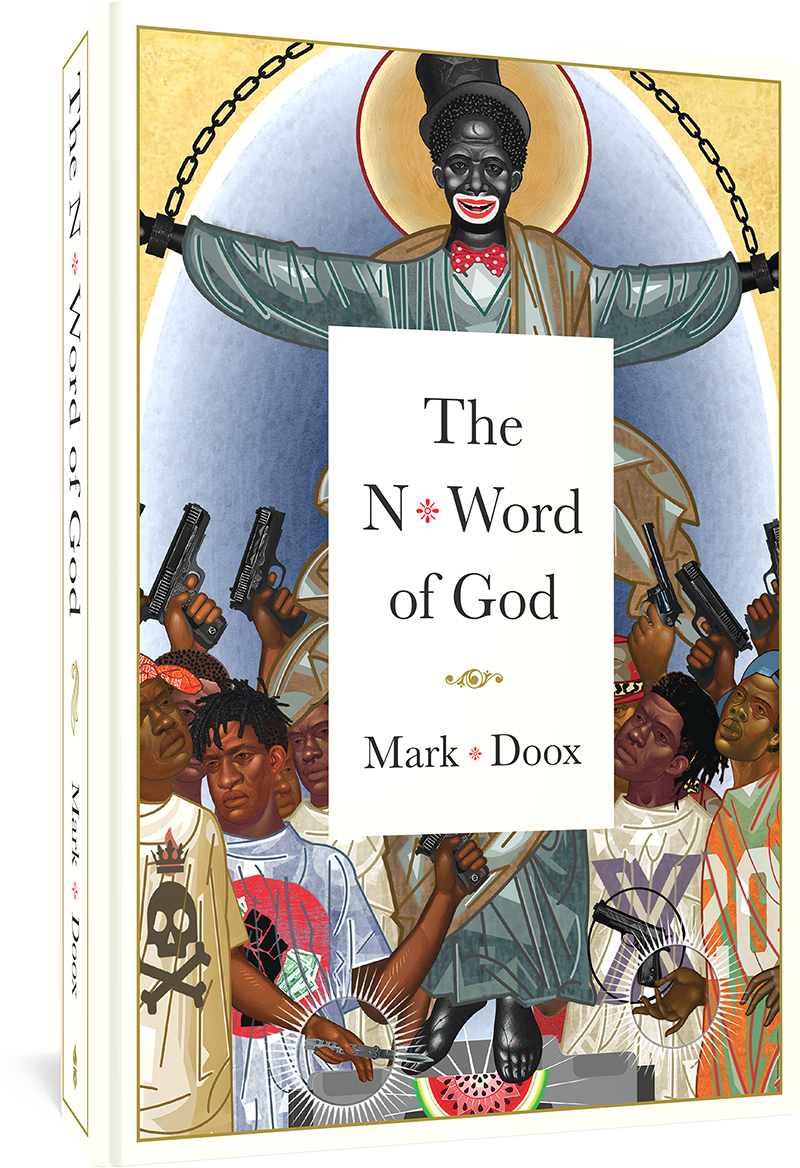Mexican N Word: Understanding The Controversial Term And Its Cultural Implications
The phrase "Mexican N Word" has become a topic of discussion in recent years as people seek to understand the cultural and social implications behind it. This term, which references a derogatory word historically used against Mexican and Latinx communities, carries deep historical roots and emotional significance. In this article, we will explore the origins, usage, and broader societal impact of this controversial phrase.
Language plays a pivotal role in shaping how we perceive and interact with the world. Words carry power, and certain phrases can evoke strong emotions due to their historical and cultural contexts. The "Mexican N Word" is one such example, where the intersection of racism, identity, and language becomes apparent.
This article delves into the complexities surrounding the term, offering insights into its origins, usage, and the broader implications it holds for Mexican and Latinx communities. By examining this topic thoroughly, we aim to foster greater understanding and empathy in discussions around race and identity.
Read also:Comprehensive Guide To Printsmart Uark Login Everything You Need To Know
Table of Contents
- The History of the Mexican N Word
- How the Term is Used Today
- Cultural Impact and Significance
- The Role of Racism in Language
- Community Responses and Reclamation Efforts
- Representation in Media
- Educational Initiatives to Combat Stereotypes
- Legal Perspectives and Challenges
- The Future of Racial Language
- Conclusion and Call to Action
The History of the Mexican N Word
The origins of the "Mexican N Word" can be traced back to centuries of colonialism, slavery, and systemic racism. During the colonial period in Latin America, derogatory terms were often used to dehumanize indigenous and mestizo populations. These terms were later adapted and perpetuated in various forms, eventually influencing the way Mexican and Latinx communities were perceived globally.
Historically, the term was used as a tool of oppression, designed to marginalize and discriminate against Mexican and Latinx individuals. Its usage reflects broader patterns of racism and prejudice that have persisted throughout history. Understanding this historical context is crucial to grasping the emotional weight carried by the phrase today.
Colonial Roots of Derogatory Language
Colonial powers often relied on language as a means of control, using derogatory terms to reinforce social hierarchies. This practice was not unique to Mexico but was prevalent across many colonized regions. The "Mexican N Word" is a remnant of this era, serving as a painful reminder of the exploitation and marginalization faced by Mexican communities.
How the Term is Used Today
In contemporary society, the "Mexican N Word" continues to appear in various contexts, often reflecting ongoing racial tensions. While its usage has diminished in formal settings, it still surfaces in informal conversations, online spaces, and even mainstream media. The persistence of this term highlights the enduring impact of historical racism on modern discourse.
Efforts to combat the use of such language have gained momentum, with activists and community leaders advocating for greater awareness and sensitivity. However, the challenge lies in addressing deeply ingrained biases and promoting inclusive language practices.
Modern-Day Manifestations
- Online platforms: Social media and online forums remain spaces where derogatory language can thrive.
- Pop culture: Some forms of entertainment have been criticized for perpetuating stereotypes through language.
- Everyday conversations: Casual use of such terms can perpetuate harmful attitudes without immediate consequences.
Cultural Impact and Significance
The cultural implications of the "Mexican N Word" extend beyond mere linguistic usage. It reflects broader societal attitudes toward Mexican and Latinx communities, influencing everything from social interactions to policy-making. The term serves as a microcosm of the larger issues surrounding race, identity, and representation.
Read also:Is Wil Wheaton Gay Exploring The Life Career And Personal Journey Of Wil Wheaton
For many Mexican and Latinx individuals, the phrase evokes feelings of pain, anger, and frustration. It reinforces stereotypes and undermines efforts to promote diversity and inclusion. Understanding these emotional dimensions is essential for fostering empathy and building bridges across communities.
Identity and Representation
Language plays a critical role in shaping identity, and derogatory terms like the "Mexican N Word" can have lasting effects on how individuals perceive themselves and their place in society. Efforts to reclaim or redefine such terms often stem from a desire to assert agency and challenge oppressive narratives.
The Role of Racism in Language
Racism manifests in various forms, and language serves as one of its most potent vehicles. Derogatory terms like the "Mexican N Word" are products of systemic racism, designed to dehumanize and marginalize specific groups. Addressing this issue requires a multifaceted approach that tackles both individual biases and institutional structures.
Education, awareness, and open dialogue are key components in combating racism in language. By promoting inclusive communication practices, we can work toward a more equitable and understanding society.
Breaking Down Barriers
Efforts to dismantle racist language often involve challenging entrenched norms and encouraging critical thinking. This process requires active participation from individuals, communities, and institutions alike. By prioritizing empathy and respect, we can create environments where diverse voices are heard and valued.
Community Responses and Reclamation Efforts
In recent years, Mexican and Latinx communities have responded to the "Mexican N Word" through various forms of activism and reclamation. These efforts aim to reclaim power over language and challenge the negative connotations associated with the term. Through art, music, and literature, individuals and groups are reshaping narratives and promoting positive representations.
Reclamation is not without its challenges, as it often sparks debates about appropriateness and authenticity. However, it represents a powerful form of resistance against systemic oppression and highlights the resilience of marginalized communities.
Art as a Tool for Change
Artists and creators play a vital role in redefining language and challenging stereotypes. Through their work, they offer alternative perspectives and inspire others to rethink their assumptions. This creative expression serves as a testament to the enduring strength of Mexican and Latinx cultures.
Representation in Media
Media plays a crucial role in shaping public perceptions of Mexican and Latinx communities. The portrayal of these groups in films, television shows, and news outlets can either perpetuate stereotypes or promote understanding. Efforts to increase authentic representation have gained traction, with more diverse voices being included in media production.
However, challenges remain, as stereotypes and biased language continue to appear in various forms. Advocacy groups and industry professionals are working to address these issues and ensure that media reflects the complexity and richness of Mexican and Latinx identities.
Progress and Challenges
While progress has been made in recent years, much work remains to be done. Media organizations must prioritize diversity in hiring practices and content creation. Additionally, audiences can play a role by supporting projects that promote authentic representation and challenging harmful portrayals when they arise.
Educational Initiatives to Combat Stereotypes
Education is a powerful tool in combating stereotypes and promoting understanding. Schools, universities, and community organizations are increasingly incorporating lessons on cultural sensitivity and anti-racism into their curricula. These initiatives aim to equip individuals with the knowledge and skills needed to navigate a diverse world.
By fostering critical thinking and empathy, educational programs can help break down barriers and promote inclusivity. This approach not only benefits Mexican and Latinx communities but contributes to a more harmonious society as a whole.
Teaching Tolerance
Teaching tolerance involves more than simply avoiding offensive language. It requires actively engaging with diverse perspectives and challenging preconceived notions. Through workshops, discussions, and experiential learning, individuals can develop a deeper understanding of the complexities surrounding race and identity.
Legal Perspectives and Challenges
From a legal standpoint, addressing derogatory language like the "Mexican N Word" presents unique challenges. While laws exist to protect individuals from hate speech and discrimination, enforcement can be inconsistent. Additionally, the line between free speech and harmful language is often blurred, leading to debates about the appropriate role of legislation in regulating language.
Advocates for language reform argue that legal measures must be accompanied by broader societal changes to be effective. This includes promoting education, fostering dialogue, and encouraging accountability at all levels.
Enforcing Change
Enforcing change requires collaboration between lawmakers, educators, and community leaders. By working together, these groups can develop strategies that address both the symptoms and root causes of racist language. This collaborative approach is essential for creating lasting change.
The Future of Racial Language
As society continues to evolve, so too must our understanding of language and its impact. The future of racial language depends on our willingness to confront uncomfortable truths and work toward meaningful change. By prioritizing empathy, respect, and inclusivity, we can create a world where all individuals are valued and respected.
The journey toward linguistic equity is ongoing, requiring sustained effort and commitment from all sectors of society. By learning from the past and embracing new perspectives, we can build a brighter future for generations to come.
Conclusion and Call to Action
In conclusion, the "Mexican N Word" represents a complex and emotionally charged topic that requires careful consideration. Its historical roots, cultural implications, and ongoing usage highlight the broader issues surrounding race, identity, and language. By understanding these dimensions, we can work toward a more inclusive and empathetic society.
We invite readers to take action by engaging in open dialogue, supporting educational initiatives, and challenging harmful language when they encounter it. Together, we can create a world where all individuals are treated with dignity and respect. Share this article, leave a comment, and explore other resources to deepen your understanding of these important issues.
For further reading, consider exploring works by authors such as The New York Times and United Nations, which provide valuable insights into the intersections of race, language, and identity.
Matthew Gray Gubler Partner 2025: Exploring The Future Of Love And Relationships
Grxcehiggsxo Naked: A Comprehensive Exploration Of The Topic
What Nationality Is Dakota Tyler? Unveiling The Truth Behind The Name

36 Mexican Word Of The Day Memes That Are Funny In Every Language

The NWord of God Fantagraphics

Home Speech Therapy N Word List, Phrases, Sentences & Games🕡 Conheça